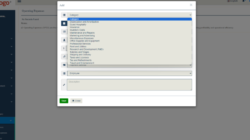The intuit credit karma app is transforming the way individuals manage their financial health. This intuitive platform not only offers users a comprehensive overview of their credit scores but also provides personalized financial recommendations tailored to their unique circumstances. With the rise of digital finance, Credit Karma stands out as a vital tool for those looking to enhance their financial literacy and make informed decisions.
This app acts as a financial companion, helping users track their progress and navigate through credit reports with ease. Whether you’re looking to apply for loans, understand credit terms, or simply improve your financial standing, the intuit credit karma app is designed to guide you every step of the way.
Financial literacy is a vital skill in today’s fast-paced and often confusing financial landscape. In a world where financial products and services are constantly evolving, understanding how to manage one’s finances is crucial for personal and professional success. This article aims to delve into the significance of financial literacy, its components, and ways to improve one’s financial knowledge.
What is Financial Literacy?
At its core, financial literacy refers to the ability to understand and effectively use various financial skills, including personal finance management, budgeting, and investing. It encompasses a range of topics such as understanding interest rates, credit scores, loans, and even the basics of stocks and bonds. Financial literacy empowers individuals to make informed financial decisions, ultimately leading to better financial health.
Why is Financial Literacy Important?
In an age where financial decisions can significantly impact one’s life, being financially literate is more important than ever. Here are several reasons why:
- Debt Management: Understanding how to manage debt is crucial. With the rise of credit cards and student loans, many individuals find themselves overwhelmed by debt. Financial literacy provides the tools to manage and reduce debt effectively.
- Budgeting Skills: Knowing how to create and stick to a budget helps individuals prioritize their spending, save for emergencies, and plan for future expenses.
- Investment Knowledge: A good grasp of investment principles allows individuals to grow their wealth over time. This includes understanding the risks and rewards of various investment options.
- Preparation for Financial Emergencies: Life is unpredictable. Financial literacy equips individuals to set aside savings for emergencies, ensuring they are prepared for unexpected financial challenges.
- Retirement Planning: Understanding retirement accounts and the importance of saving early can significantly impact an individual’s quality of life in their later years.
Components of Financial Literacy
To be financially literate, one must be familiar with several key components:
- Budgeting: The process of creating a plan to spend your money effectively.
- Saving: Setting aside a portion of income for future use, especially for emergencies.
- Investing: Allocating resources, usually money, in order to generate income or profit.
- Understanding Credit: Knowing how credit works, the importance of credit scores, and how to maintain a healthy credit profile.
- Insurance Knowledge: Understanding different types of insurance and their importance in protecting assets.
Improving Your Financial Literacy
Improving financial literacy is a lifelong process that requires dedication and effort. Here are some effective ways to enhance your financial knowledge:
1. Educational Resources
There are countless resources available for learning about finance. Books, online courses, and financial websites can provide valuable information. Many local libraries also offer free financial literacy workshops.
2. Financial Advisors
Consulting with a financial advisor can offer personalized insights based on your unique financial situation. Advisors can help with budgeting, investment strategies, and long-term financial planning.
3. Community Workshops
Many non-profit organizations and community centers hold workshops focused on financial literacy. These can be great opportunities to learn from experts and ask questions in a supportive environment.
4. Online Tools and Apps
Utilizing financial apps can help individuals track their spending, create budgets, and manage investments effectively. Many of these tools offer user-friendly interfaces and educational resources.
5. Engage in Conversations
Discussing financial topics with friends, family, or coworkers can lead to valuable insights and perspectives. Engaging in conversations about money can help demystify financial concepts and encourage learning.
The Role of Schools in Financial Literacy
One of the critical places where financial literacy can be taught is in schools. Unfortunately, personal finance education is often neglected in school curricula. Advocating for financial education in schools is essential for equipping future generations with the tools they need to succeed financially.
Incorporating financial literacy into school programs can help students understand budgeting, saving, investing, and managing debt before they graduate. By introducing these concepts at an early age, we can foster a generation of financially savvy individuals who make informed decisions.
Conclusion
In today’s complex financial world, financial literacy is no longer a luxury but a necessity. It empowers individuals to take control of their financial futures, make informed decisions, and ultimately lead more fulfilling lives. By investing time and effort into improving financial literacy, individuals can better navigate their financial journeys and secure a brighter financial future for themselves and their families.
Questions Often Asked
What features does the intuit credit karma app offer?
The app provides users with credit score monitoring, personalized financial recommendations, and tools for tracking loans and credit cards.
Is the intuit credit karma app free to use?
Yes, the app is completely free to use, with no hidden fees or charges.
How often is my credit score updated in the app?
Your credit score is typically updated every week, allowing you to keep track of any changes in real-time.
Can I access my credit report through the intuit credit karma app?
Yes, the app provides access to your credit report from major credit bureaus, helping you understand your credit history in detail.
Does using the intuit credit karma app affect my credit score?
No, using the app to check your credit score is considered a soft inquiry and does not impact your credit score.












